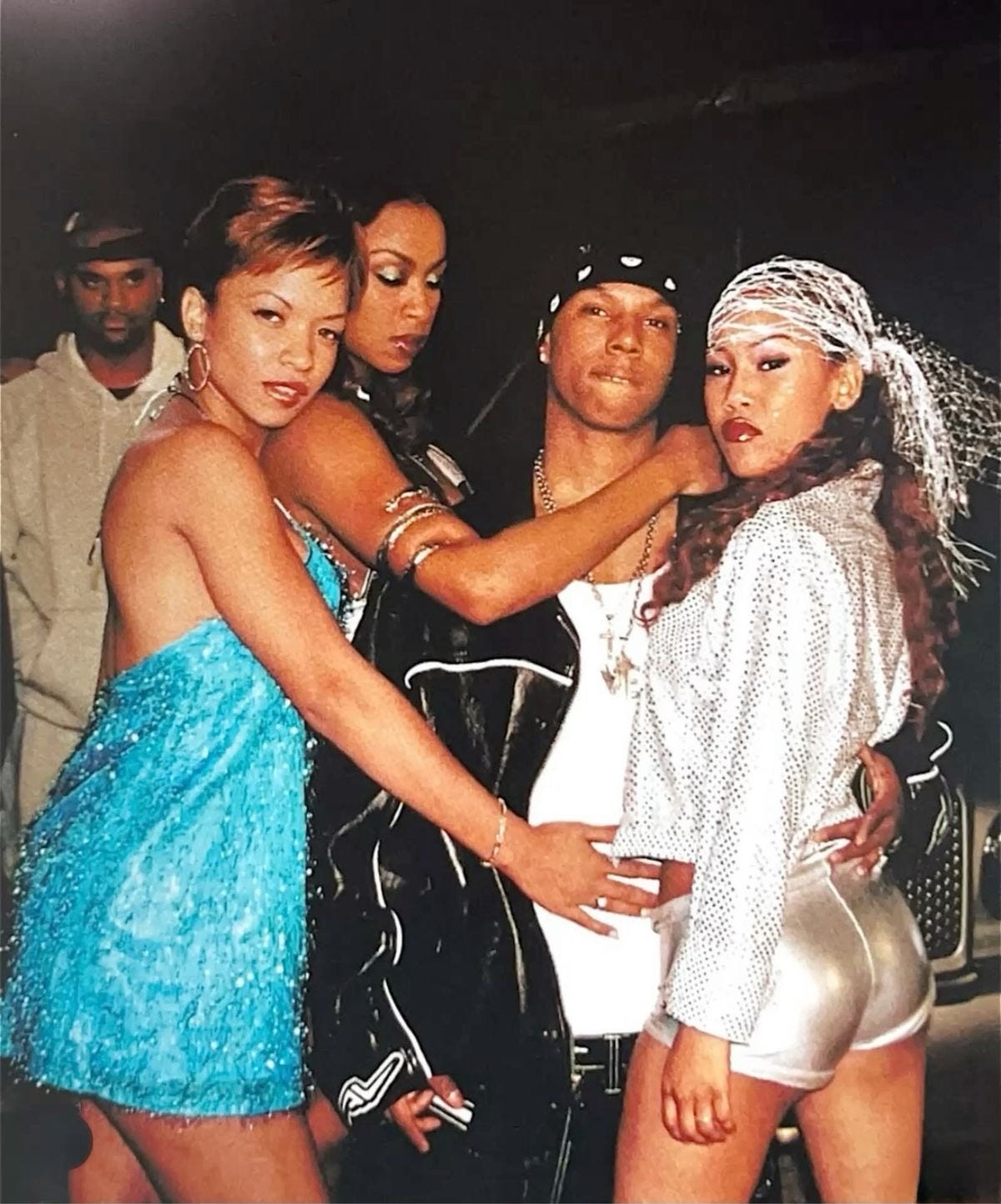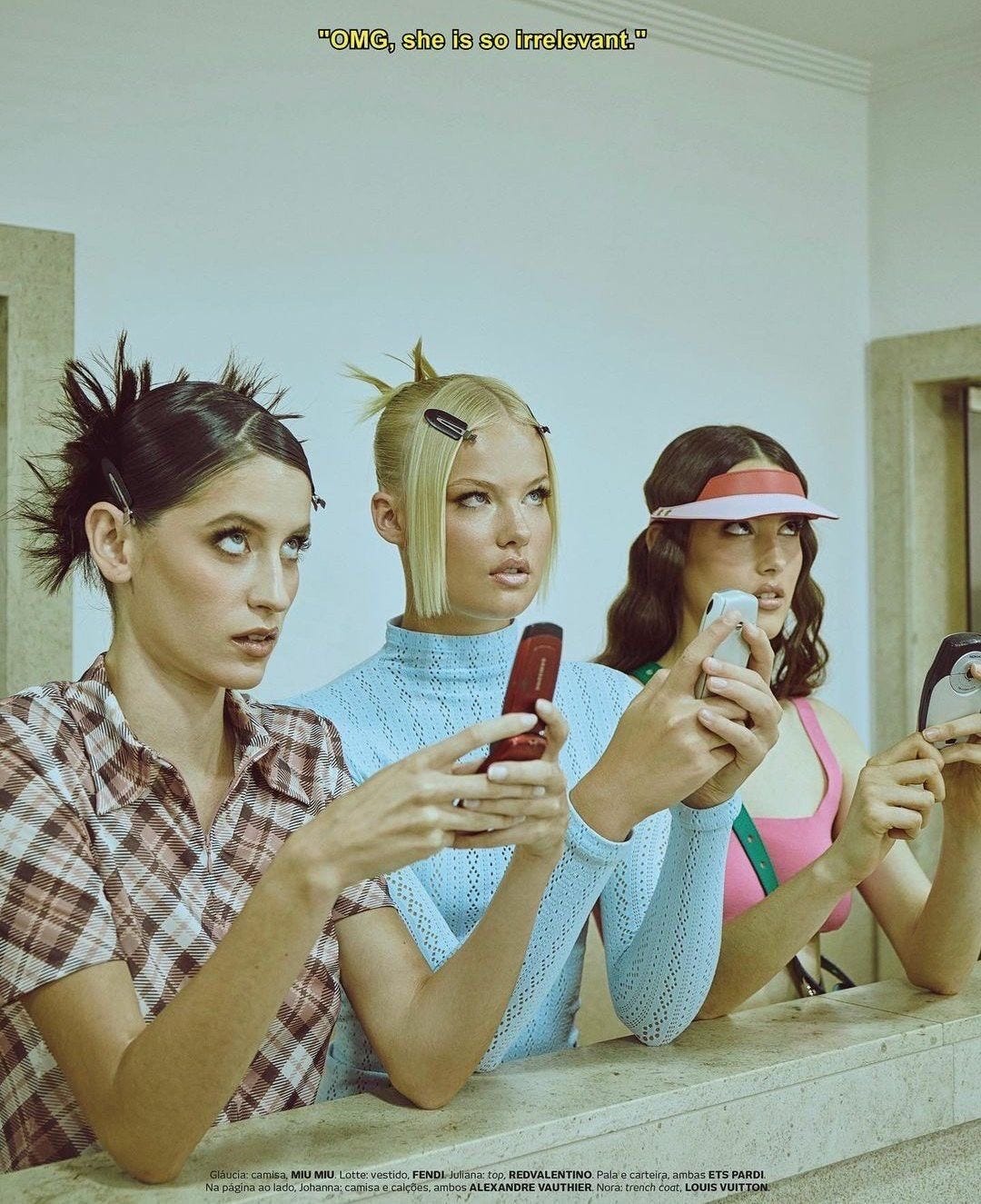The Eroticism of Mystery: Longing for a Life Less Seen
Why the pre-social media era still captivates us—and what we’ve lost in the age of constant exposure.
Gen-Zs obsession with the early 2000s and late 90s cannot be ignored. One of the defining characteristics of that era is the absence of social media as we know it today. Many Gen-Z arenostalgic for a time that they did not live, partially because the period has been idealized in the media, but also because theyfeel like something was present, or maybe lacking, that they no longer have access to. The disdain for social media is a feelingshared with people across all generations. Many feel overwhelmed and yearn for a pre-social media, pre-smartphone era, despite some generations not remembering or experiencing anything different.
I believe the source of this nostalgia is a desire for mystery. The pre-social media world was less predictable and filled with unanswered questions. Today, there is an overwhelming amount of information readily available. We are rewarded for broadcasting our lives in real-time, reducing the mystery that made life exciting. The mystery associated with the pre-social media era offers spontaneity, independence, and a sense of freedom and community that has been lost in an era of oversharing.
The loss of independence and freedom
The image of the pre-social media era offers an independence and freedom that the current generation may feel is missing. We are addicted to our phones. Before social media being outside and engaging in real world activities was the norm. The social activities that prior generations took part in appeared to be more readily accessible, while today many of the social activities that we take part in rely on online validation from friends and strangers alike. Before social media there was no pressure to post and broadcast enjoyment, and more of a chance to truly live in the moment.
Decline of in-person community
The introduction of social media has brought with it, a lost sense of community. Many factors have played a role in the loss of in person community, including social media’s addictive naturesignificantly altering how we interact. As a society, our ability to communicate has declined, and we often rely on our phones in social situations. Sitting in silence has become increasingly more uncomfortable, instead of engaging with those around us, many instinctively reach for our phones, effectively blocking out the world around us.
Along with the introduction of online communities and forums, physical communities have become increasingly difficult to find and access. Communities have often been tied to physical spaces. Finding people that aligned with your values and interesttook effort and initiative to physically interact with others. People had to physically leave their homes outside of work,looking to bookstores, music venues, skateparks and other third spaces to gather, but these scenes aren’t tied to a physical space anymore. These spaces had an air of mystery – you had to seek them out, put in effort to become part of them, and build connections with others. Now it is much easier to find niche communities to interact with, but this convenience degrades organic connection and threatens the construction of third spaces entirely.
The Beauty of Mystery and Untainted Experiences
The mystery of life before social media allowed people to express themselves more freely. Today, we think and act through the lens of an aesthetic or an instagram post. What we wear, where we go, and how we spend time are shaped by an awareness that everything can be documented and shared and feedback will be received. Not being perceived by so many people and being pushed to commodify our lives and personalities could create more room for people to be individuals.
Conclusion: The Illusion of Connection
Although social media has created new forms of community, it has changed the way we engage with one another, and declined engagement as a whole. The call for a pre-social media era has become louder in recent years, shown in the encouragement to return to “dumb phones” and disconnect with social media as a whole, as people acknowledge the detriment of social media on human interaction.
Social media promises connection, but has taken away the mystery that once made life exciting, personal, and free. The collective nostalgia for the past could be a longing for a return to curiosity, imagination, and the excitement of not knowing everything all at once.
In reclaiming mystery, we will regain a deeper sense of freedom, connection, and individuality.







